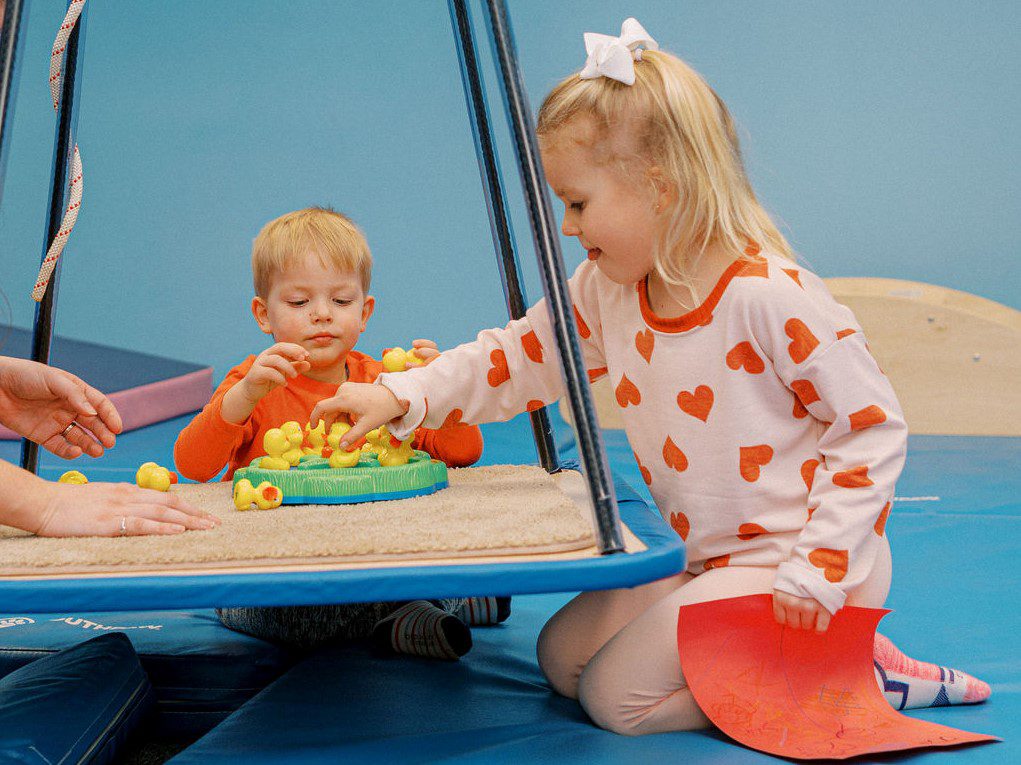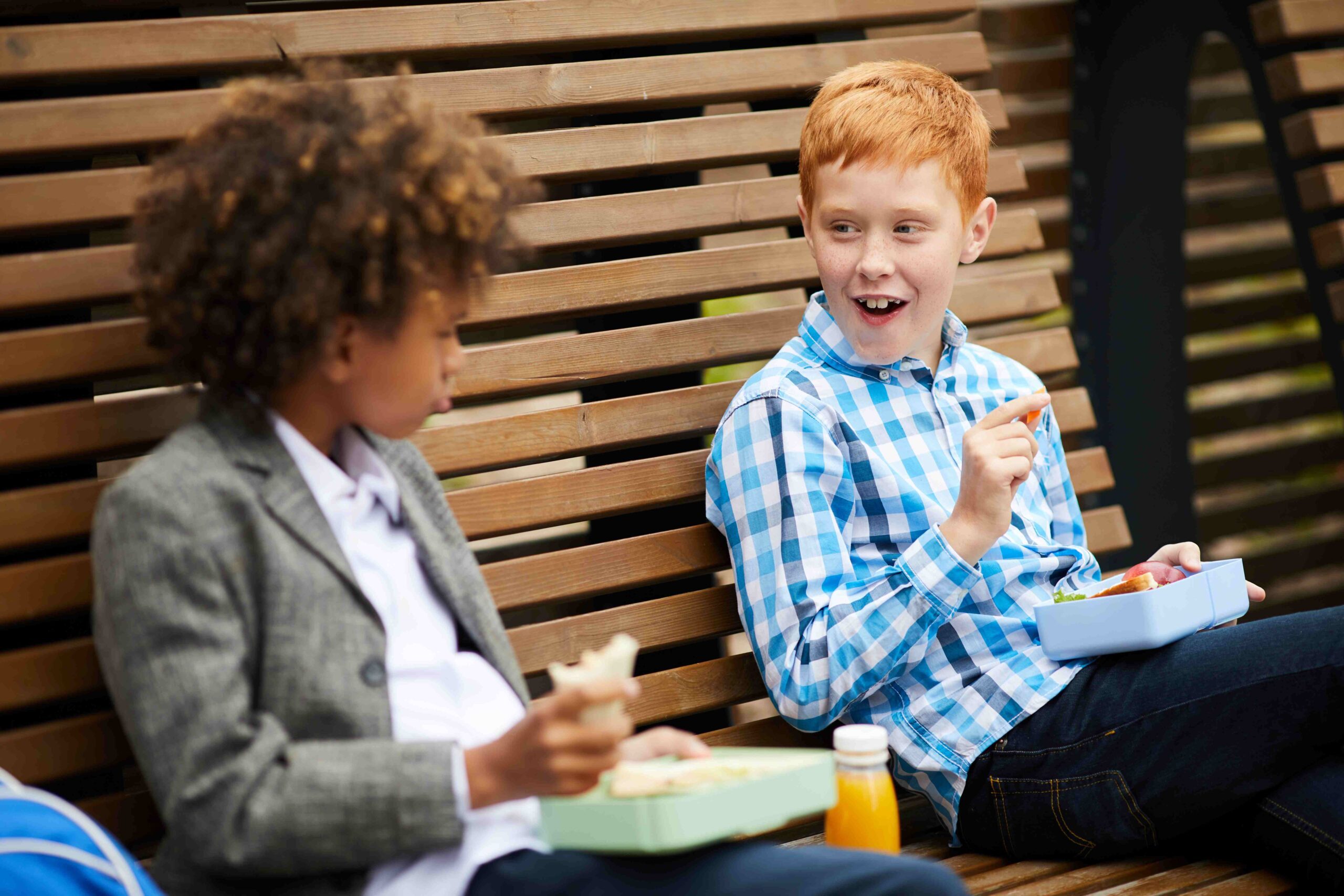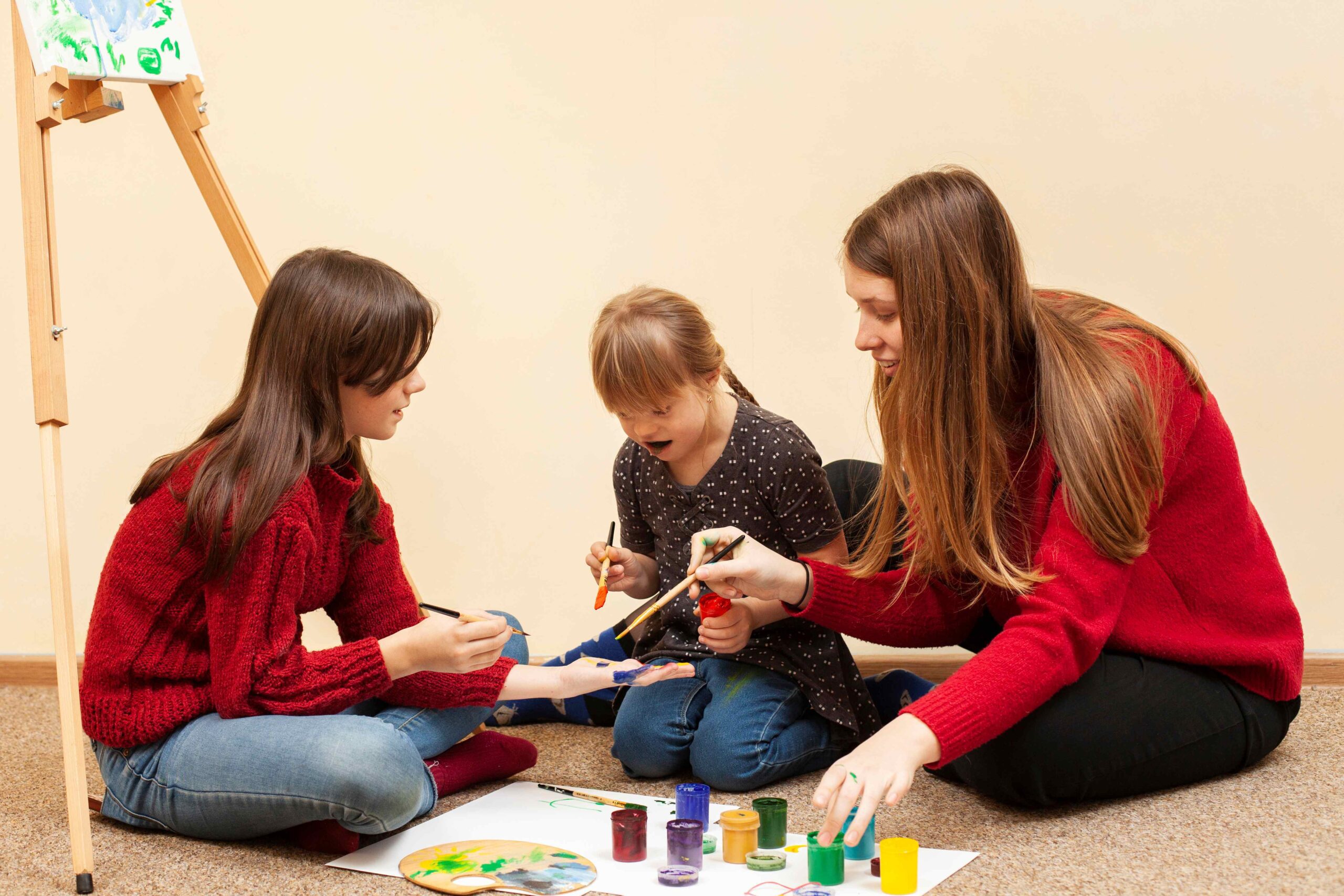When people think about speech therapy for kids, the focus is often on helping them pronounce words better, expand their vocabulary, or overcome language delays. However, speech therapy goes far beyond just helping children articulate their sounds or understand language structure. It plays an important role in fostering social skills, particularly in children who struggle with communication challenges.
Speech therapy is a tool that helps children develop better social interactions, improve eye contact, understand social cues, and engage in everyday conversations with confidence. Whether your child has autism spectrum disorder (ASD), a speech delay, or another communication disorder, developing social skills is an essential part of their overall growth and development.
Keep reading to learn more about the connection between speech therapy and social skills in children, why it’s important, and how speech therapy helps kids become better at navigating social interactions.

What Are Social Skills and Why Are They Important?
Social skills are the abilities we use to interact with others, communicate our thoughts, and understand social situations. For children, social skills are crucial as they navigate friendships, school life, and relationships with caregivers. These skills include:
- Making eye contact during conversations
- Understanding body language and facial expressions
- Listening to others and taking turns speaking
- Recognizing social cues, like knowing when someone is upset or happy
- Starting and maintaining conversations with peers or adults
For children with speech or language difficulties, these seemingly simple social interactions can be overwhelming. A lack of social skills can lead to feelings of isolation, frustration, and difficulty making friends. That’s where speech therapy comes into play. Speech-language pathologists (SLPs) are not only experts in communication but also in helping children navigate social scenarios with more ease and confidence.
How Speech Therapy Improves Social Skills
Speech therapy helps children learn how to express themselves, listen to others, and interpret the world around them in a more socially appropriate way. Here are several ways speech therapy works to improve social skills in children:
1. Teaching Non-Verbal Communication
Communication isn’t just about words. A huge part of social interaction involves non-verbal cues such as body language, facial expressions, and gestures. Children with communication challenges, including those with ASD, often struggle to understand or use non-verbal communication.
Through speech therapy, children learn to recognize and use non-verbal signals, such as smiling when greeting someone, using hand gestures when explaining something, or recognizing when someone else looks sad or upset. Mastering non-verbal communication can significantly improve a child’s ability to engage in meaningful interactions with peers and adults.
2. Building Confidence in Social Interactions
Children who struggle with speech and language issues may often feel anxious or uncomfortable in social settings. This can lead them to avoid group activities, shy away from making friends, or withdraw from conversations. Speech therapy focuses on helping children build confidence by giving them the tools they need to express themselves clearly and effectively.
SLPs use role-playing and other interactive activities to help children practice conversations, greetings, and turn-taking in a safe and supportive environment. The more practice they have, the more confident they’ll become in real-life situations, like school or playdates.

3. Improving Eye Contact and Active Listening
One of the fundamental social skills children learn in speech therapy is making eye contact during conversations. Eye contact helps show interest, attention, and respect in social interactions. Children with communication challenges might struggle with maintaining eye contact, which can hinder their ability to connect with others.
Additionally, speech therapy encourages active listening skills—teaching children to pay attention when others are speaking, respond appropriately, and take turns in conversations. These skills are vital for engaging in meaningful social exchanges and building relationships.
4. Understanding Social Cues and Pragmatic Language
Social cues are subtle hints that guide our social interactions, such as understanding when someone is joking, detecting sarcasm, or knowing when a conversation has ended. Many children with communication challenges struggle to interpret these social cues, making conversations feel confusing or uncomfortable.
Speech therapy helps children improve their understanding of pragmatic language, which refers to the social use of language. Pragmatics involve understanding context, using appropriate language for different situations, and adapting speech based on who they’re talking to. SLPs work with children to practice scenarios where they can improve their comprehension of social cues, ensuring they respond appropriately in various social contexts.
5. Teaching Turn-Taking and Conversation Skills
One of the foundational skills for successful social interactions is the ability to take turns in a conversation. In speech therapy, children practice conversational turn-taking—learning when to speak, when to listen, and how to respond to others.
Therapists may use structured activities like games or guided play to teach these skills in a fun, engaging way. Over time, this helps children become more comfortable with the back-and-forth nature of conversations, allowing them to participate more fully in social settings.

Speech Therapy for Children with Autism Spectrum Disorder (ASD)
Many children with autism spectrum disorder face unique challenges in communication, particularly when it comes to social interactions. Autism affects how children perceive and interact with the world around them, often leading to difficulties in making friends, interpreting body language, and engaging in conversations.
Speech therapy can be especially beneficial for children with ASD, as it addresses not only language development but also social communication skills. Here’s how speech therapy helps children with autism:
- Understanding social rules: Children with autism often have difficulty understanding unwritten social rules, such as how close to stand to someone when talking or how to appropriately greet someone. Speech therapy helps children learn these “rules” and practice them in real-world settings.
- Developing joint attention: Joint attention is the ability to focus on an object or event with another person. For example, if a child and parent are looking at a picture book together, joint attention helps the child focus on what the parent is pointing out. Many children with ASD struggle with this, but speech therapy helps develop joint attention through interactive activities and play.
- Enhancing conversational skills: Children with autism may have a limited ability to hold conversations or maintain the flow of a discussion. Speech therapy focuses on improving this by teaching how to ask questions, stay on topic, and respond to others’ comments during conversations.

Why Social Skills Are Important for Long-Term Success
Social skills are critical for building friendships, succeeding in school, and eventually navigating the workplace. When children develop strong social communication abilities, they are better equipped to:
- Build positive relationships: Friendships are an important part of growing up. Speech therapy helps children become more successful in making friends and understanding how to maintain those relationships.
- Succeed in school: Many classroom activities require group work, peer collaboration, and listening skills. Speech therapy improves a child’s ability to interact in the classroom environment, contributing to academic success.
- Develop emotional intelligence: Social skills go hand-in-hand with emotional development. Understanding how to express feelings, recognize others’ emotions, and respond appropriately are key components of social communication that speech therapy addresses.
Ideas for Supporting Social Skills at Home
Engage in Playdates
Set up structured playdates where your child can practice interacting with others in a controlled setting. Encourage taking turns, sharing, and communication during play.
Model Good Social Behavior
Role-Playing
Use Visual Supports

Final Thoughts
Speech therapy plays a vital role in helping children not only communicate more effectively but also develop the social skills they need to succeed in life. Whether your child struggles with making friends, maintaining eye contact, or understanding social cues, speech therapy can help.
If you’re concerned about your child’s communication or social skills, talk to your child’s pediatrician and reach out to us at Michigan Pediatric Therapy. Our experienced team of licensed speech-language pathologists can assess your child’s needs and create a personalized therapy plan to support their social development.
Michigan Pediatric Therapy
📍 27655 Middlebelt Rd., Suite 130, Farmington Hills, MI 48334
📞 (248) 939-4030
🌐 mipediatrictherapy.com



